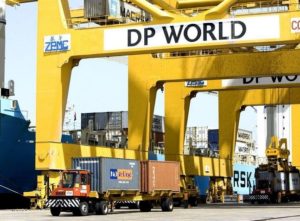
Uber plans to launch the Uber Shuttle pilot project, a servicing to book a seat in a minibus that will drive from one pre-arranged location along a fixed route to another pre-arranged location within the city, in Kyiv in May 2019, the press service of Uber has told Interfax-Ukraine.
This service is also available in Cairo (Egypt) and Monterrey (Mexico).
Uber said that during the pilot project, customers will be able to book a seat in the minibus via the Uber application.
“Uber strives to become a multimodal platform for personal mobile services, giving users access to various modes of transport with the click of a button, so that they can move around the city without need of having their own car. With the pilot launch of Uber Shuttle in Kyiv, we offer the experience of using this service to users here in Ukraine,” the press service said, citing Europe, Middle East, and Africa (EMEA) Head at Uber Pierre-Dimitri Gore-Coty.
The company said that the main goal of the pilot project is the use of Uber technology, to offer Ukrainian users another alternative way to travel around the city.
“This pilot project is part of Uber’s mobility strategy available on the platform,” Uber said.
Gore-Coty also said that Ukraine is very important for Uber, and the company will continue investing in the country, promoting new products on the Ukrainian market.

P & O Maritime Ukraine, a subsidiary of DP World Group, a provider of tugboat services, has announced the start of operations at the Odesa seaport, the company has said on its Facebook page.
The letter on the start of the operations was sent to acting Head of the Ukrainian Sea Ports Authority Raivis Veckagans and thee Odesa branch of the authority.
“Odesa is the third Ukrainian port after Yuzhny and Chornomorsk, in which a representative of the world’s largest operator will work. For work in Odesa, contracts with leading global shipping companies have been concluded,” the company said.
“I am sure that the port, ship owners, terminals and the towing market as a whole will benefit from our cooperation,” P & O Maritime Ukraine CEO Mykhailo Sokolov said.
As reported, in January 2018, P & O Maritime, a fully owned subsidiary of DP World Group, received control over LB Shipping company and started providing tugboat services at the Yuzhny port. The co-investor of the deal was SD Capital investment company belonged to Andriy Stavnitser and Filip Hrushko.
In July 2018, P & O Maritime Ukraine began to provide services at the port of Chornomorsk.

Ukraine in January-March 2019 increased electricity exports by 4.1% (by 66.2 million kWh) compared to the same period in 2018, to 1.662 billion kWh, the Ministry of Energy and Coal Industry has told Interfax-Ukraine. Electricity supplies from the Burshtyn TPP Energy Island in the direction of Hungary, Slovakia and Romania increased by 0.4% (by 2.7 million kWh), to 1.027 billion kWh.
Electricity supplies to Poland decreased by 3.1% (by 12.9 million kWh), to 410.4 million kWh.
Electricity supplies to Moldova amounted to 224.6 million kWh, which is 53.6% (78.4 million kWh) more than in January-March 2018.
For the three months of 2018 and 2019, Ukrainian electricity was not exported to Belarus and Russia.
In addition, in the first quarter of this year, Ukraine imported 5.9 million kWh of electricity from the Russian Federation and Belarus compared to 8.9 million kWh in January-March 2018.

PrJSC Volodymyr-Volynsky Poultry Farm (Volyn region) will invest EUR 38 million in the construction of a new poultry processing facility, which will allow doubling production, director general of the company Alina Sych has said. According to her, the capacity of the new workshop will be 13,500 broilers per hour. Construction is to be completed in a year or two. The company will produce goods under the Epikur brand at this facility: poultry grown without antibiotics and growth stimulation.
“The monthly increase in the sales of Epikur poultry is about 43%. We grow 4.6 million birds. As the demand for our products is growing, we start building new facilities to raise production. Within the total production by the factory, the share of Epikur is more than 30%, the rest is grown according to the standard technology,” Sych told Interfax-Ukraine.

According to her, the company plans to use most of the new capacity for the production of the Epikur brand. The company sells products under this brand in the retail networks of Auchan, Metro, Furshet, Novus, Fora, Velyka Kishenya, MegaMarket and others, now it is entering the Silpo network.
“The priority for us is the development of the Epikur brand in Ukraine. The export share of the company is insignificant: about 5-6%. Now we deliver Halal-certified products to the countries of the Middle East and Africa under Al Dalal chicken and Delika trademarks. The new workshop will increase production and allow passing all the required certification for exporting goods to Europe,” the director general of the company said.
In addition, Volodymyr-Volynsky Poultry Farm actively implements alternative energy projects.
“We have switched 70% of heating to solid fuel boilers burning wood; we heat the water for the processing plant by burning feathers as waste. We also have a project to produce straw briquettes for heating,” Sych said.

“We are not developing biogas technology, since, synchronously with the new workshop, we are launching the production of bone meal, and all waste will be sent there. This flour is the basis for feed. The cost of this project is EUR 3.8 million,” she added.
PrJSC Volodymyr-Volynsky Poultry Farm is a Ukrainian-Dutch enterprise, part of the Openmind group of companies. The factory’s infrastructure includes 100 poultry farms, a processing workshop and a feed mill with a capacity of 10,000 tonnes per month.
The company produces chicken under the Epikur brand without antibiotics and growth stimulation, as well as chicken under the Chebaturochka trademark. It has seven branches in Volodymyr-Volynsky, Lviv, Kyiv, Vinnytsia, Zhytomyr, Kharkiv and Odesa.
In 2017, the share of the poultry farm was about 6% of the Ukrainian market.
The founder and CEO of Openmind is Oleksiy Kovalenko.